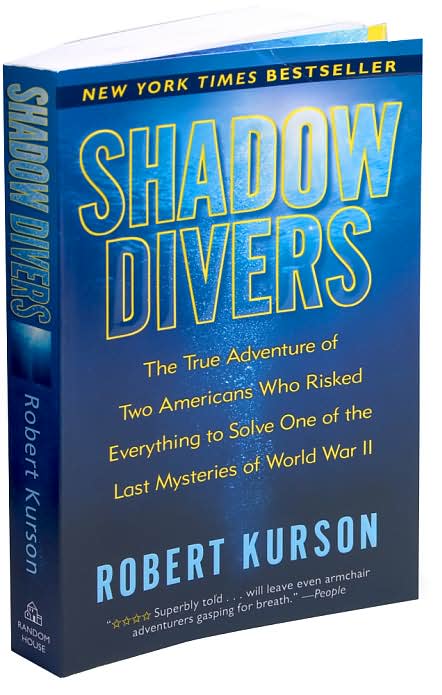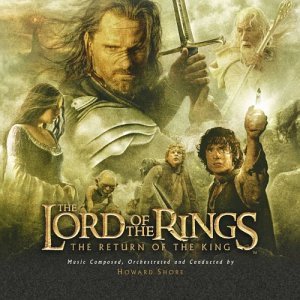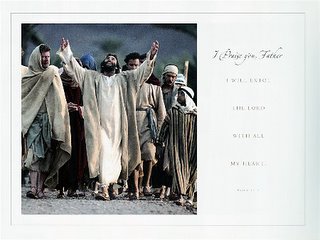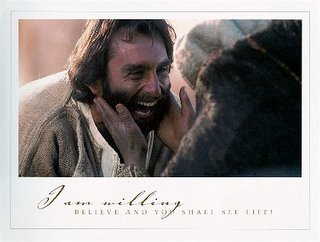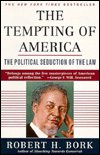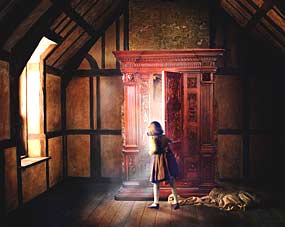
When the presents are all opened and the leftovers packed away, one special memory this
Christmas will be the joy of having seen the film of
the Lion the Witch and the Wardrobe. (Fans of the old Houston Christmas Pageant, there is a Christmas balm in Narnia.)
It was spectacular! Rather than analyze it from some theological, philosophical, cinematic or other serious, thoughtful perspective, I write as one swept up in the magic. What a great movie. I haven't liked a movie more in years . . . on second thought,
ever, including the also spectacular
Lord of the Rings trilogy. (Tolkien was instumental in the conversion and writings of the once-atheist Lewis. Click
here and
here.)
I sat between my seven-year-old daughter (who finished the 4th-grade book just before we left) and my four-year-old son. Sure, that affected my take on it. But given the books were expressly written for children, their influence is welcome. And they both liked the movie, without being scared by the creatures, although some were nearly as scary as a few in the LOR trilogy (which the kids won't be seeing any time soon--our bed only sleeps two).
We watched the BBC version in October. I found it something 'less' than spectacular.On a more serious note, like the book, the movie does for a modern audience or fantasy reader what the Old Testament--the Old Covenant, the law, the sacrificial system--did for the Hebrew people, and likewise, for all
sons of Adam. That is,
the movie builds a mental framework upon which to hang the gospel story. It isn't so much that the movie shares the gospel--it does not. But it invites you into a world where the gospel story makes sense. This is a critical task, by the way, though not one you will often hear preachers discuss. Actors and writers understand it, as do literature professors, like Clive Staples. People can't accept the gospel when they are still asking questions like one I read in a British paper's review of the movie "
Why did he die for me? I never asked anyone to die for me?" But that is exactly the point of Lewis's story. Lewis isn't talking about you and Jesus. I know it looks that way, like he's preaching or something. But Lewis is spinning a yarn about a bunch of kids in England. Remember? There is no Aslan, no Narnia. It's just a story. But the story has tremendous power if you'll let it get into you.
This is, of course, the power of stories. They get into you. They reroute your mind, like wagon wheels in the prairie--every story creates paths, ruts. This one makes a path that can completely change the course of your life--if you follow it.
If you're a humanist, athiest, whatever, never really understood about the gospel story--check out the
Lion the Witch and the Wardrobe. Sure, the book is better because it takes a bit more time to address the crucial issues of the 'deeper magic' that control the actions of Aslan and the Witch. But the movie succeeds in all the ways a movie can. (By the way, see
Christianity Today for a set of
articles on the movie.
Roger Ebert speaks very highly of the film, contrasting the film positively in relation to both the LOR and Harry Potter. Some will find
Movieguide a good source for an unusally "left-brain," strictly moral review of all films--but they loved it.)
I'd also like to address concerns once raised by
the most popular man not presently owning internet real estate,
SPLOOSH: a year ago the savvy actor cried me a river about Disney's obtaining the rights to Narnia. He said they'd destroy all that makes Narnia special. And his comments were not unwarranted, given their commercialization and superficial treatment of other works. And as I understand it, the man naming himself for the sound of--what is it, death on the Marathon game?--was not alone in his concerns. I think (remind me, someone?) there were many people complaining and begging Disney to get it right this time. What effect protestors may have had is unknown; more important may be the huge amount of money
Gibson's PASSION movie made. Money talks and Disney has managed not to waste theirs on Narnia--they'll make a mint this Christmas. And many will be brought closer to the kingsom as a result. In Narnia parlance,
Aslan is on the move. (Oh, the power and awe in that phrase.
What a great show!) I should further note that it is Walden Pictures, arguably a more family-friendly studio, that
has the final say on the details--not Disney.
(By the way, Lewis was
against a movie of his books--but that was fifty years ago. Special effects have progressed a bit.)
Finally, one of Lewis's biggest fans is an English professor at Houston Baptist University. I sat in on a class, but had graduated just before the arrival of Dr. Louis Markos. He's a wonderful teacher and has written what ought to become a big seller in the next few months,
a readable, but intellectual treatment of the life and work of Jack Lewis. Friday's Houston Chronicle cited Dr. Markos in an
interesting article, including his analysis of the symbolic nature of each of the Pevensie children.
Oh--and here's one
SPOILER:
the oompa loompa dies. :-)
